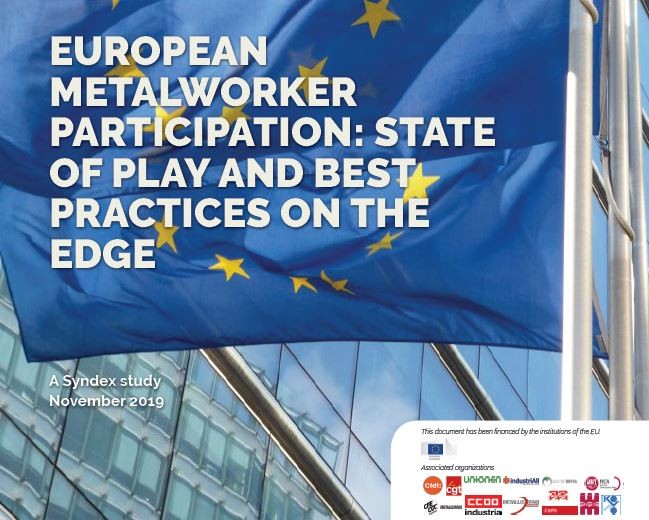Study on the functioning of EWCs in the metalworking sector
The European metallurgy sector is at the core of Europe’s industrial base and contributes largely to its economic development. However, it is facing major challenges linked to worldwide competition, resulting in restructuring and relocation plans as well as planned regular factory closures. Considering that EWCs in the metallurgy sector make up a third of all existing EWCs, we can legitimately state that employee representatives, through EWCs, can potentially help the sector meet the several challenges facing it.
This study takes stock of the functioning of European works councils in the metalworking sector and identifies best practices with a view to promoting them. It also marks the end of two years of work and collaboration with key players in the European social dialogue, namely the members of European works councils and European companies. It involved representatives of around 30 EWCs in 5 seminars across Europe and a final conference in Brussels. A large number of trade union organisations joined forces to carry out this project: FGMM-CFDT, FTM-CGT, CFE-CGC metallurgy, OS Kovo (Czech Republic), SIPTU from Ireland, Union (Sweden), UGT (Spain), CCCO (Spain), FGTB (Belgium), CSC (Belgium).
- Study excerpt -
The metallurgy sector represents a significant share of all existing EWCs, roughly 40%. This represents roughly 380 active EWCs.
By sector, the automotive sector seems to head the list as regards the number of EWCs, followed by the mechanical engineering, high technology (ICT), aeronautics, iron and steel, household and electrical equipment sectors.
The distribution of EWCs in the metallurgy sector is linked directly to country size and their industry.
It is hardly surprising, therefore, that Germany is the first country as regards the number of EWCs folowed by the United Kingdom and France. The EWCs of several companies also have their headquarters in Sweden and the Benelux countries.
There are over 50 EWCs present in the Nordic coun- tries (including Finland), i.e. 15% of the total.
Benelux also has some 50 EWCs.
Benelux figures are inflated by the registration of some companies in certain countries: EADS is considered as Dutch headed, Arcelor Mittal as Luxembourg headed, etc.
